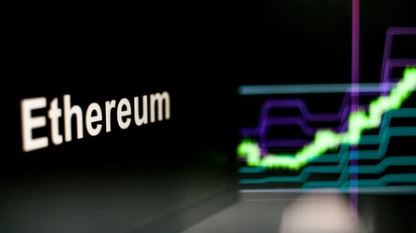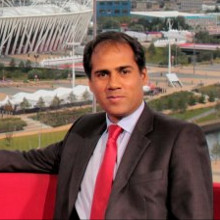The stock market is an amazing place where some can manage to lose money when the market rises or make money when it falls on the contrary. It would seem that the world economy is recovering from the horrific consequences of the coronavirus and will continue to get better, but in reality, everything is a little more complicated. To revive the financial system from a self-created crisis, central banks turned to monetary policy. As a result, benchmark interest rates were cut to record lows and, in some cases, negative values. Without a doubt, it helped businesses recover from a blow in the gut, but it also triggered a rise in corporate debt. Hence the fear of inflation and the elimination or reduction of quantitative easing by central banks. According to the latest data, the US economy is recovering, and so is the employment rate. On the one hand, this cannot but rejoice, but on the other hand, it cannot but throw into a cold sweat. More and more Fed members are urging to start talking about phasing out stimulus in the US as early as possible. Where it leads? Of course, to the correction, however, there will be both losers and those who will be able to take advantage of the situation.

Speaking of the coming week, markets will be looking for additional catalysts for either upside or downside. In the case of cryptocurrencies, the situation is not the best, and to return to $60,000, something more serious is needed than Musk’s statements about his commitment to BTC. In addition, do not forget that the new head of the SEC may soon take seriously the regulation of the crypto market, and here it is not far from the new bear market.
Against the geopolitical background, stands out the confrontation between the world community and China, or rather the actions of the Communist Party in Xinjiang. Several international companies also decided to express their point of view, for which sometime later they will pay – Nike, H&M, Adidas, New Balance, Burberry, Puma, and Tommy Hilfiger. Even Tesla suffered – China began to ban auto companies in strategically important places … Meanwhile, the EU decided to freeze the ratification of the investment deal with the PRC until China lifts sanctions against disinformers in Xinjiang. China did not like this movement, to put it mildly, and perhaps soon we will see the continuation of the story.
The other big news, no doubt, is a potential nuclear deal between Iran and the United States. Tehran is already preparing to increase its oil exports to “maximum capacity” in the coming months, and Rouhani (the current Iranian president) said that an agreement in principle on a nuclear deal had been reached. Despite this, the risks of a deal failure are still in the air. Thus, Israel said it had intercepted a combat drone fired from Iran.
In addition, we continue to monitor the data on the coronavirus, as they directly affect production, employment, inflation, and retail sales. For example, guess which country’s PMI data was bad? Japan, where only a small part of the population is vaccinated. The country may extend the state of emergency until mid-June. By the way, there are just over 2 months left before the Summer Olympic Games in Tokyo!
In general, the coming week is rich in events – the Fed’s speech, data on consumer demand and confidence, the EU meeting (at which the 2030 targets for reducing greenhouse gas emissions, Brexit, and Russia will be discussed), the IFO report, etc.
Finally, it will be a pretty calm week in Europe. But that may be good for the euro, as the currency may simply continue to rally against the dollar in the absence of critical news. The rise in eurozone bond yields helped the euro rise, so barring unexpected intervention from the ECB, oral or otherwise, this trend could continue until at least the next policy meeting on June 10.

 Hot Features
Hot Features












